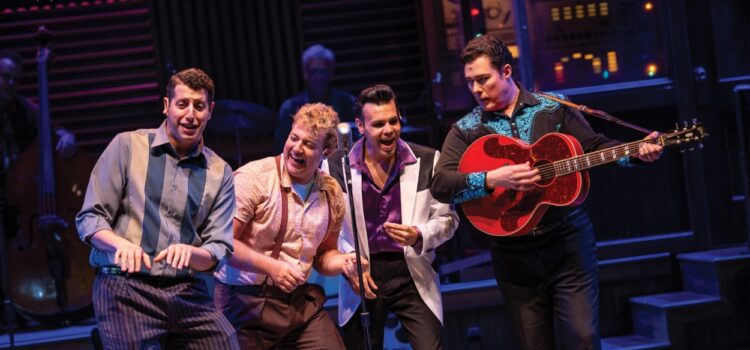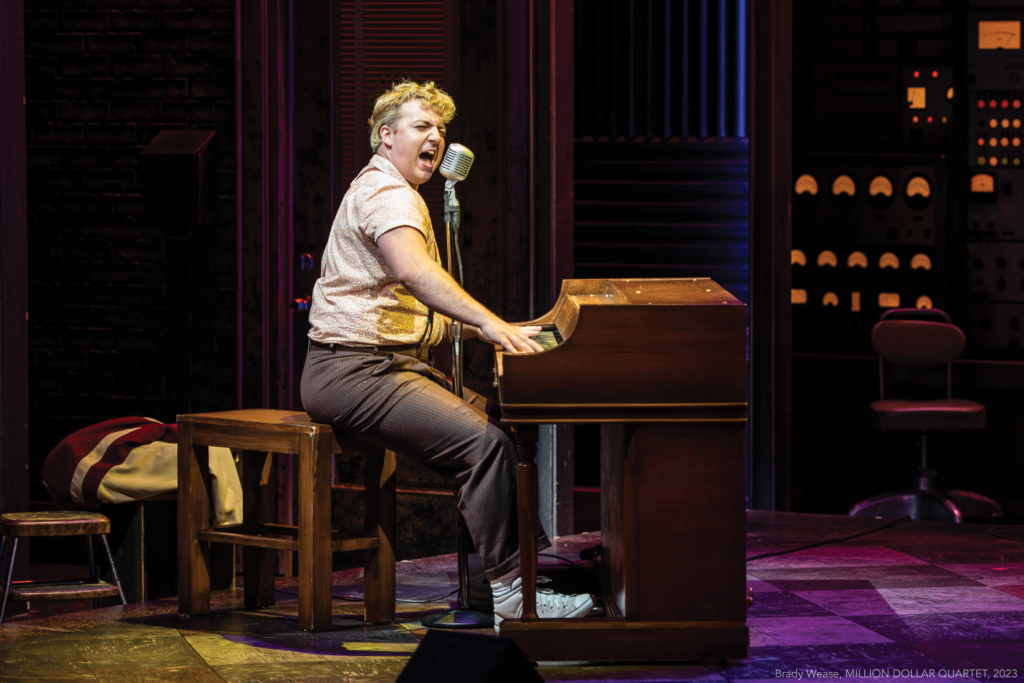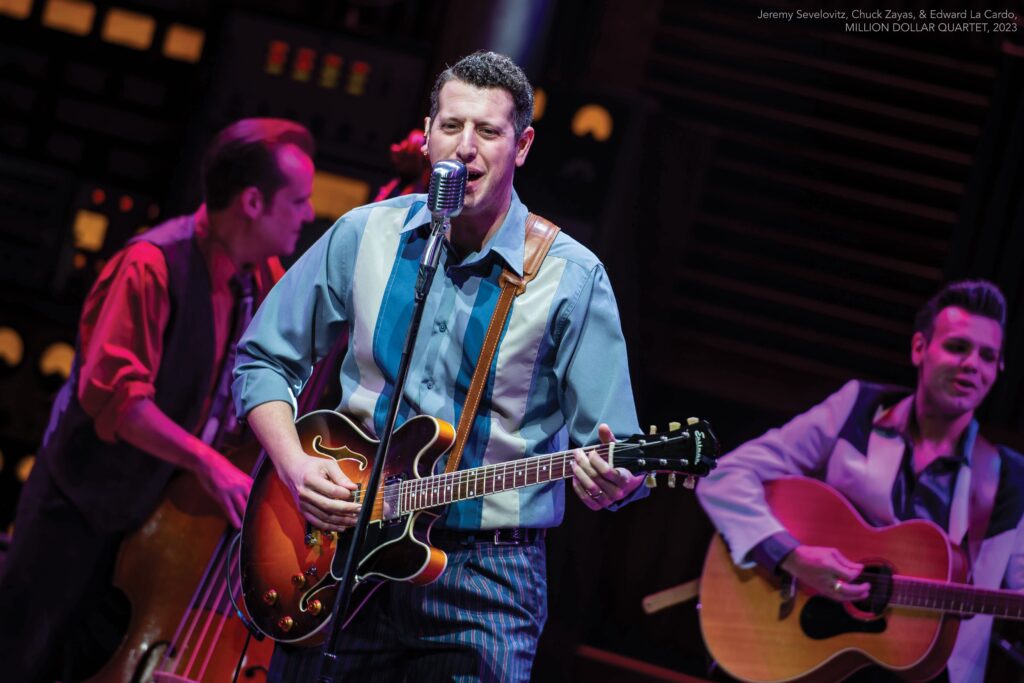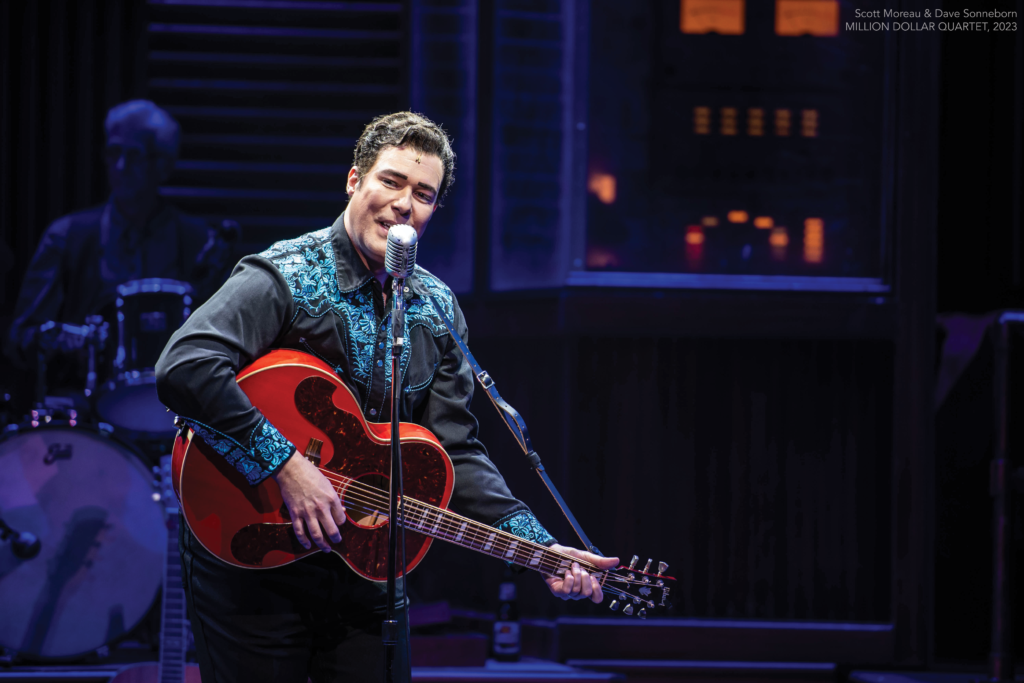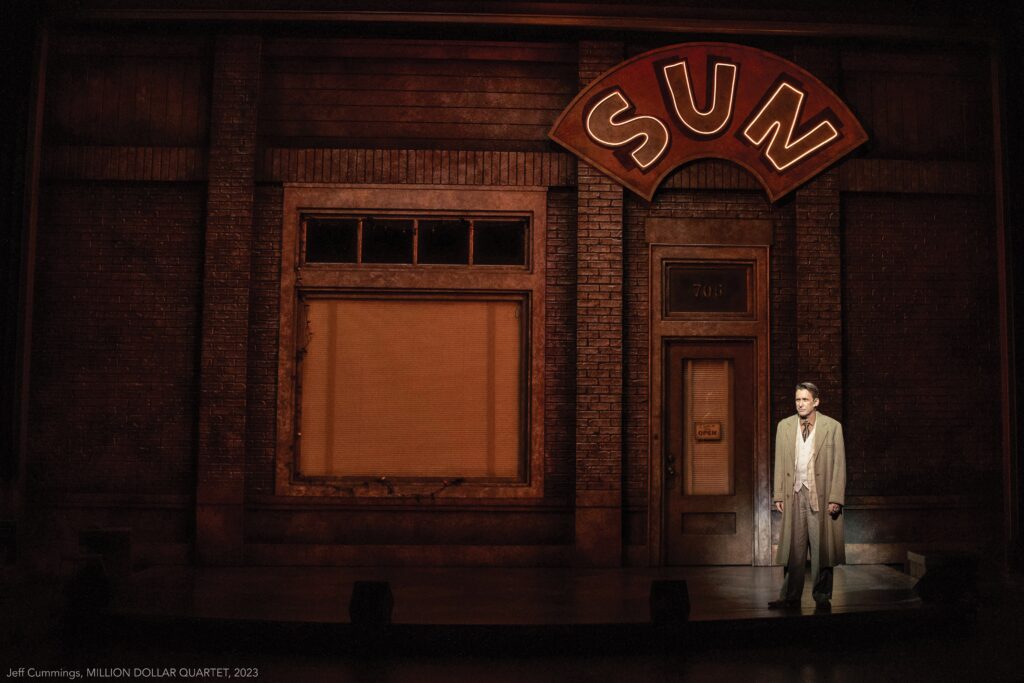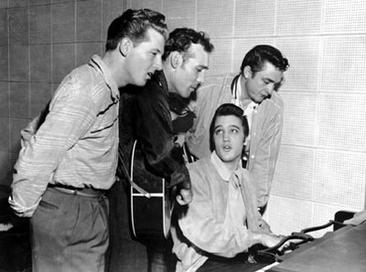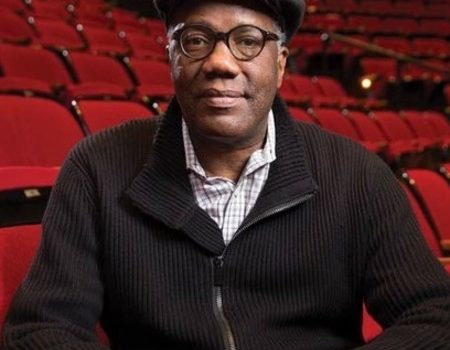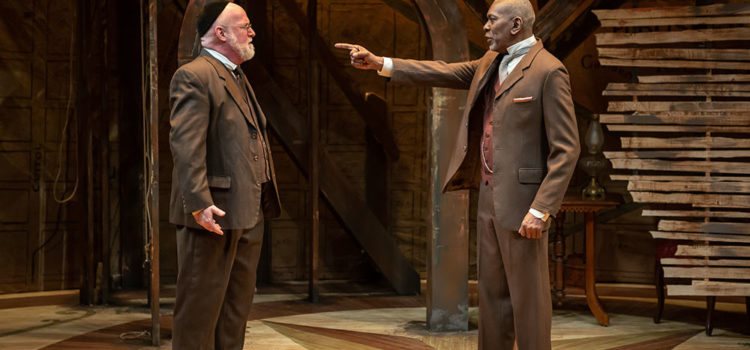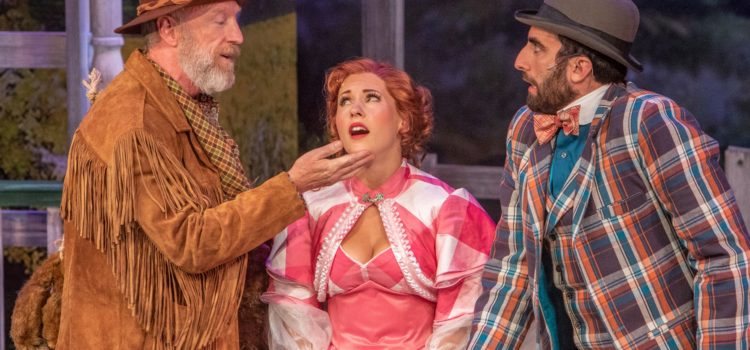Production Team Includes Director Paige Price and Scenic Designer Kate Rance
Stages St. Louis is proud to unveil the stellar ensemble cast for its upcoming production of “Steel Magnolias.” This beloved story, known for its memorable characters and heartfelt message, will grace the stage from May 31 – June 30 in The Ross Family Theatre at the Kirkwood Performing Arts Center.
In “Steel Magnolias,” you will take a trip south to the town of Chinquapin, Louisiana and join the ladies at Truvy’s Salon in Chinquapin, Louisiana. There anyone who’s anyone not only comes to get their hair cut and styled, but also leaves with free advice…whether asked for or not. Along with her eager assistant Annelle, Truvy pampers a collection of clients with both style and gossip: M’Lynn and her soon-to-be-married daughter Shelby, the wisecracking and crotchety Ouiser, and the well-to-do Clairee. Together these touching, heartfelt, outspoken, and hilarious ladies forge friendships as strong as steel that help them through both the good times and the bad.
The 2024 Season also includes the smash-hit Disney’s Newsies and concludes with the dazzling Ragtime.
AMY LOUI (M’Lynn) is thrilled to make her STAGES debut. Amy has played every STL Equity stage but one. Regional theaters include Greenbrier Valley Theatre, Copper Mountain Rep, Herringbone Productions Hawaii, STAGES Houston. Recent roles: All My Sons (Kate), Silent Sky (Henrietta), Sweat (Tracy), My Name Is Asher Lev (all women). Nominated for multiple Kevin Kline/Theater Circle
Awards, Amy is also a producer and voice talent. Love to all steel magnolias out there – the world needs you. www.amyloui.com
TAYLOR QUICK (Shelby) is overjoyed to be making her STAGES debut! Credits: understudy Anya / Young Anastasia, Anastasia (1st Broadway National Tour); Peggy, 42nd Street (Maltz Jupiter); Millie, Thoroughly Modern Millie (Goodspeed); Sandy, Grease (Fulton); Amalia, She Loves Me (Link Theatre); Liesl, Sound of Music (Fulton, MSMT); Laurey, Oklahoma! (Ogunquit); Penny, Hairspray (Maltz
Jupiter); Flaemmchen, Grand Hotel (Lyric Stage). Film: God’s Not Dead 2. Soloist: Broadway at Long’s Park (Lancaster Symphony). Distinguished Young Woman AR 2012. Love to family, Ben, and DGRW. Rejoice Always. @taylorlquick
ZOE VONDER HAAR (Ouiser) has been a STAGES Company member for over 35 years and 75 shows. STAGES: Clue (Mrs. Peacock), Gypsy (Mama Rose), Hello Dolly (Dolly), Always Patsy Cline (Louise). MUNY: Into the Woods (Jack’s Mother), Kinky Boots (Stage Manager), My Fair Lady (Mrs. Higgins STL REP: Sunday In the Park (Mother), Follies (Hattie), Urinetown Ms. Pennywise). FARMERS ALLEY: It Should Been You (Judy), The Cake (Della). Zoe teaches/directs/choreographs at Washington
University and St. Margaret of Scotland school.
KARI ELY (Clairee) celebrates 30 STAGES seasons. Favorites include: I DO, I DO, A LITTLE NIGHT MUSIC, THOROUGHLY MODERN MILLIE, GYPSY and CRAZY FOR YOU. Most recent: Thelma in Wedding Band (Black Rep), and two World Premiere plays: THE GOOD SHIP ST. LOUIS (Upstream) and COMFORT (Actors’ Studio). Next up: playing Big Momma opposite her real-life husband Peter Mayer in
CAT ON A HOT TIN ROOF (Tennessee Williams Festival). Kari thanks you for supporting live theatre!
JILANNE MARIE KLAUS (Truvy) has acted nationally and internationally on stage and screen for over three decades and is delighted to be joining STAGES St. Louis. After stints in New York and Los Angeles, she returned to the St. Louis stage last year as Ethel in Barefoot in the Park, which earned her a Theatre Critics’ Best Supporting Actress nomination. She would like to thank her family for
being as excited about her work as she is.
ABIGAIL ISOM (Annelle) is thrilled to return to STAGES St. Louis, where she made her professional debut in 2006 as Tootie in Meet Me in St. Louis, alongside her parents. Recent credits include Equus (Jill Mason) and Doubt (Sister James) at The Fulton Theatre, as well as Windfall (Hannah Higley), directed by Jason Alexander at Bay Street Theatre. She thanks Gayle Seay, Paige Price, and everyone at
STAGES. Love to her friends, family, and Caroline. abigailisom.com @abigailisom
LARI WHITE (Standby) is ecstatic to be returning to STAGES this year. You may have seen her last year as Yvette in Clue. Other roles include Mairead in Lieutenant of Inishmore for which she won a St. Louis Theatre Circle award. Lari is also a multi-instrumentalist under the moniker Kiing Lair. To catch up on all of her projects visit larimaewhite.com. Much love to her family, friends, Archie, and Brock.
LEXY WITCHER (Standby) is a Kansas-born, St. Louis-based performer, and she is thrilled to work with such an amazing cast, crew, and team! Select St. Louis credits: Wayward (First Run Theatre), Carol Kwiatkowski; A Midsummer Night’s Dream (St. Louis Shakespeare), Hippolyta; and Doubt: a parable (Prism Theatre), U/S Sister James. Lexy has also worked with Blue Gate Musicals and various live
entertainment venues. Many thanks to Gayle, Paige, Alicia, my family, Zach, and King.
MEME WOLFF (Standby) has performed in theatres across the USA and Canada and is thrilled to be working at STAGES again. Some favorite roles include Boston Marriage (Anna), Who’s Afraid of Virginia Woolf? (Martha) and The Wizard of Oz (Glinda/Auntie Em). Additional work includes Marconi Award winning commercial voice-overs, announcer duties for KSDK-TV and KETC-TV and hosting radio programs on KTRS and KLOU. Some in between jobs include sign language interpreter and dolphin trainer.
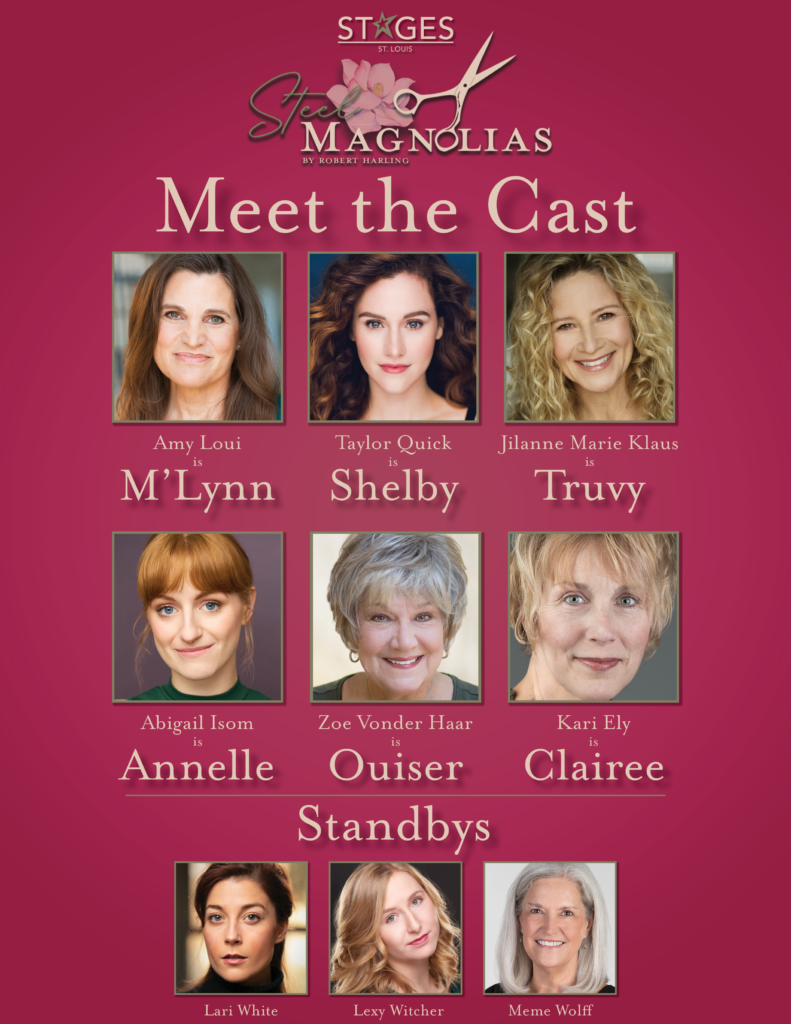
PRODUCTION TEAM
“I am thrilled to unveil the extraordinary creative team behind our upcoming production of STEEL MAGNOLIAS,” Artistic Director Gayle Seay said. “Their talent and dedication promise to bring this beloved story to life in ways that will captivate and resonate with our audiences. We invite everyone to join us on this journey as we ‘Experience the Story’ through their remarkable vision and artistry.”
Paige Price will make her debut with STAGES as the director for STEEL MAGNOLIAS. Price brings over 30 years of experience in the industry as a former professional performer, director, producer, and artistic director. On Broadway, she starred in the original casts of SATURDAY NIGHT FEVER, DISNEY’S BEAUTY AND THE BEAST, AND SMOKEY JOE’S CAFÉ. Most recently, she co-produced
THE COTTAGE (Broadway 2023) and she is a lead producer on the newly premiered comedy, JUDGEMENT DAY starring Jason Alexander.
The story will come to life with the artistry of Scenic Designer Kate Rance, who returns after creating the iconic set for STAGES’ 2023 production of AIDA. Joining her will be Lighting Designer Sean Savoie, an accomplished electrical veteran returning for his 10th season with STAGES St. Louis.
Costume Designer, Brad Musgrove, has designed 25 productions at STAGES, winning the St. Louis Theatre Circle award for the productions of; ANYTHING GOES, IN THE HEIGHTS, AND CLUE. With great enthusiasm, STAGES welcomes Tony Award winning Sound Designer Nevin Steinberg (Broadway: THE NOTEBOOK, SWEENEY TODD 2023 Revival-Tony Award, HADESTOWN- Ton
Award, HAMILTON) and Wig Designer, Daniel J Paller (MARY POPPINS, Tuacahn Center for the Arts, 12 NIGHT/ROMEO AND JULIET, Oregon Shakespeare Festival).
Production Stage Manager Monica Dickhens returns after working on STAGES productions of PATSY CLINE, A CHORUS LINE AND MILLION DOLLAR QUARTET. Her National Tour Credits include: THE COLOR PURPLE, SISTER ACT, AMERICAN IDIOT, LEGALLY BLONDE, CAMELOT (Lou Diamond Phillips), PETER PAN (Cathy Rigby) and JESUS CHRIST SUPERSTAR (Carl Anderson). She will
work alongside Production Manager, Kimberly Klearman Peterson (Director of Production, Ballet West in Salt Lake City, Production Manager, Touhill Performing Arts Center).
Tickets for the 2024 Season are on sale now. For more information, please follow STAGES Facebook and Instagram or visit STAGESStLouis.org.

Lynn (Zipfel) Venhaus has had a continuous byline in St. Louis metro region publications since 1978. She writes features and news for Belleville News-Democrat and contributes to St. Louis magazine and other publications.
She is a Rotten Tomatoes-approved film critic, currently reviews films for Webster-Kirkwood Times and KTRS Radio, covers entertainment for PopLifeSTL.com and co-hosts podcast PopLifeSTL.com…Presents.
She is a member of Critics Choice Association, where she serves on the women’s and marketing committees; Alliance of Women Film Journalists; and on the board of the St. Louis Film Critics Association. She is a founding and board member of the St. Louis Theater Circle.
She is retired from teaching journalism/media as an adjunct college instructor.


